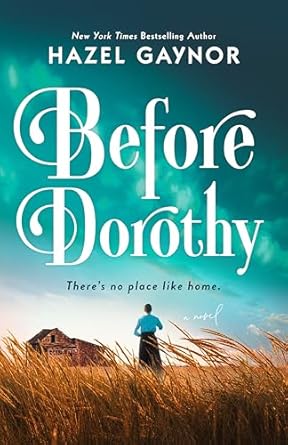The anthropologist's wife, an artist, didn't want to follow her husband to the remote desert of northeast Africa to live with camel-herding nomads. But wanting to be with him, she endured the trip, only to fall desperately ill years later with a disease that leaves her husband with more questions than answers. When the anthropologist discovers a deception that shatters his grief and guilt, he begins to reevaluate his love for his wife as well as his friendship with one of the nomads he studied. He returns to Africa to make sense of what happened, traveling into the far reaches of the Chalbi Desert, where he must sift through the layers of his memories and reconcile them with what he now knows. Set in a windswept wilderness menaced by hyenas and lions, The Names of Things weaves together the stories of an anthropologist's journey into the desert, his firsthand accounts of the nomads' death rituals, and his struggle to find the names of things for which no words exist. Anthropologist John Colman Wood's debut novel is an exquisite, haunting exploration of the meaning of love and the rituals of grief.
Paperback, 276 pages
Published April 1st 2012 by Ashland Creek Press
ISBN 1618220055 (ISBN13: 9781618220059)
About the Author
from Goodreads
John Colman Wood teaches at the University of North Carolina at Asheville. His field research with Gabra nomads of northern Kenya and southern Ethiopia has been funded by the Wenner-Gren Foundation, the National Geographic Society, and the Max Planck Institute for Social Anthropology.
His fiction has appeared in Anthropology and Humanism, and he has twice won the Ethnographic Fiction Prize of the Society for Humanistic Anthropology, once for a story extracted from The Names of Things.
He is the author of When Men Are Women: Manhood among Gabra Nomads of East Africa (University of Wisconsin Press, 1999). Before becoming an anthropologist, Wood was a journalist.
My Thoughts
She hung the canvas on the wall of the studio. I'd seen her start paintings dozens of times, but for some reason-- perhaps because of how things turned out-- this one has stayed with me. The canvas was square, a little taller and wider than her reach. the surface was primed bluish white, thick enough to mask the texture. Despite its bulk the frame was empty, a window unto snow.An anthropologist goes on a pilgrimage across northeast Africa after the death of his wife, coming to terms with her loss and wondering whether he really even knew her at all.
It's interesting that I can't tell you the anthropologist's name, as I don't believe it is ever mentioned in the book. He is simply referred to as "he" and "him", or by the native word "ferenji" used for Westerners. Likewise his wife is simply referred to as "she".
This story is at once very simple, getting to the heart of the matter, without excessive flourish or glamor, and yet it is complex, winding around on itself. There isn't a great amount of dialogue in the book, as the majority of the story is self-discovery and the discovery of truth. All of his interaction in the story is with the Africans he encounters and stays with during his journey, and they are a simple and quiet people, not given to excessive chatting.
There are some interesting transitions between chapters where bits of the Dasse culture are revealed. The author writes of "rituals that surround death and dying". For example:
There is a strict division of labor at a Dasse burial: Men dig the grave, lower the body, fill the grave, cover it; women, prepare the body and cook food for the men to eat afterward. Men say women are too emotional to prepare the grave. If they helped, one man said, they would do more crying than digging. Women are not even supposed to come near. You wonder, if women are so emotional, how they manage the intimacies of the body itself.After his artist wife dies from an unnamed disease that sounds suspiciously like AIDS, the anthropologist begins to look through her journal and questions arise, causing him to embark on a trek back to the village of his friend Abudo, in hopes of finding answers.
My final word: This was an enjoyable read, and went fairly quickly. The author is very adept at bringing you into the story with lovely description that isn't overdone, and a writing style that can flow from verbose to rather clipped, the anthropologist varying from very logical reasoning that examines his own life with scientific precision to reflecting on beautifully sensitive and emotional moments with his wife in their life together. A lovely little story.
Buy Now:
Amazon
Barnes and Noble
But the Nook book now for only $2.99!
My Rating:
Disclosure:
I received a copy of this book to review through the LibraryThing Early Reviewers, in exchange for my honest opinion. I was not financially compensated in any way, and the opinions expressed are my own and based on my observations while reading this novel.





















No comments:
Post a Comment